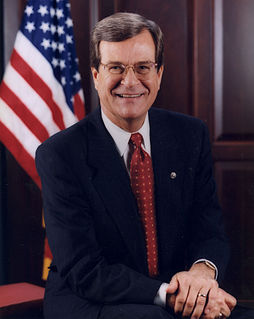A Quote by James A. Haught
As editor of the largest newspaper in West Virginia, I scan hundreds of reports daily . . . and I am amazed by the frequency with which religion causes people to kill each other. It is a nearly universal pattern, undercutting the common assumption that religion makes people kind and tolerant.
Related Quotes
The incipient magician will confess his faith to a universal religion. He will find out that every religion has good points as well as bad ones. He will therefore keep the best of it for himself and ignore the weak points, which does not necessarily mean that he must profess a religion, but he shall express awe to each for of worship, for each religion has its proper principle of God, whether the point in question be Christianity, Buddhism, Islam or any other kind of religion.
In 1980 we declared the globe free of smallpox. It was the largest campaign in United Nations history until the Iraq war. A hundred and fifty thousand people from all over the world, doctors of every race, religion, culture and nation, who fought side by side, brothers and sisters, with each other, not against each other, in a common cause to make the world better.
The knowledge exists by which universal happiness can be secured; the chief obstacle to its utilization for that purpose is the teaching of religion. Religion prevents our children from having a rational education; religion prevents us from removing the fundamental causes of war; religion prevents us from teaching the ethic of scientific cooperation in place of the old fierce doctrines of sin and punishment. It is possible that mankind is on the threshold of a golden age; but, if so, it will be necessary first to slay the dragon that guards the door, and this dragon is religion.
Yet Buddhism is four hundred years older than Christianity, and if it's not a universal religion I don't know what a universal religion is. There's also a strong focus on selectionism and the notion that religion plays a functional role in the evolutionary process. But religion is dysfunctional all the time, as well as functional. It's not so simple.
There are serious mistakes - among them the one saying that Jesus came as a messenger for other people other than the sons of Israel... Christianity is not a faith for people in Africa, Asia, Europe and the Americas. Other people who are not sons of Israel have nothing to do with that religion... It is a mistake that another religion exists alongside Islam. There is only one religion which is Islam after Mohammed... All those believers who do not follow Islam are losers.
We are nearly always longing for an easy religion, easy to understand and easy to follow; a religion with no mystery, no insoluble problems,no snags; a religion that would allow us to escape from our miserable human condition; a religion in which contact with God spares us all strife, all uncertainty,all suffering and all doubt; in short, a religion without a cross
Religions have been universal in the sense that all the people we know anything about have had a religion. But the differences among them are so great and so shocking that any common element that can be extracted is meaningless.... The older apologists for Christianity seem to have been better advised than some modern ones in condemning every religion but one as an impostor, as at bottom some kind of demon worship or at any rate a superstitious figment.
Compassion is not a popular virtue. Very often when I talk to religious people, and mention how important it is that compassion is the key, that it's the sine-qua-non of religion, people look kind of balked, and stubborn sometimes, as much to say, what's the point of having religion if you can't disapprove of other people?
































